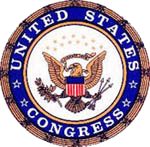Sweden to Tax Virtual Income

Transactions between participants in a virtual world, where the deal is about the sale of a “product” or a “service” against reimbursement in an internal currency, should be considered, according to the Swedish Tax Agency’s ruling, [actual] sales of electronic services, if the internal currency can be exchanged to a valid legal means of payment. If the internal currency cannot be exchanged to money, the transactions should not be considered [actual] sales. (emphasis added)
 requirement that “the internal currency can be exchanged to a valid legal means of payment”?
requirement that “the internal currency can be exchanged to a valid legal means of payment”?
The Agency also finds that a participant who, without carrying on a trade, independently and with certain permanence sells electronic services for more than 30 000 Swedish kronor [about US$5,000], is carrying out an activity that is professional…
The significance of this is that even if a player is only engages in virtual trades for entertainment purposes, if the real-world value of those trades exceeds a certain threshold, Sweden’s value-added tax is due.
One additional point worth noting:
A sale has taken place in Sweden if the seller is a Swedish trader who sells electronic services to … a private person in Sweden or another EC [European Community] country. A sale from a foreign trader to a Swedish trader has also taken place in Sweden. The same applies if a trader from outside the EC sells services to Swedish private persons.
Thus, even U.S. citizens are subject to Swedish taxes in virtual worlds, as long as one of the participants is Swedish. The implication is that if similar tax rules are adopted around the globe, U.S. citizens could end up owing taxes to Sweden, Japan, South Korea, and other nations (depending on which and how many worlds they are part of) – all because they played some games.
The VERN post itself recognizes the difficulty in setting clear tax rules for virtual worlds:
If you categorically rule that transactions inside virtual worlds are outside the scope of tax law, you are creating a tax evasion channel for companies and individuals. … On the other hand, if you rule that all in-game transactions are treated like real trade under the law, you end up with a crazy situation where Swedish World of Warcraft enchanters may have to add value-added tax to the price of their services.
MindArk, the Swedish-based firm behind Entropia, has reacted str ongly to this announcement. In an interview on Realtid, MindArk CEO Jan Welter Timkrans said (according to this translation):
ongly to this announcement. In an interview on Realtid, MindArk CEO Jan Welter Timkrans said (according to this translation):
Skatteverket states that gamers should send invoices to each other. It’s unreasonable stuff they’re talking about. The users don’t know who they’re interacting with.
Hopefully they’ll listen to the feedback from this announcement. I am happy to pay taxes, as I really love the US and I am clear that I get a lot of value from living here. I believe MindArk feels the same way about Sweden. I think the taxman has to be careful not to kill the golden goose, though. I think it’s a good idea to let the gosling grow up and figure out how to get as many golden eggs as possible, instead of one unsatisfying meal of baby goose.
I am sure that MindArk is just the first firm the take notice of the Skatteverket ruling. Other firms, and millions of their users, will likely have similar reactions, particularly if other nations begin to replicate Sweden’s tax expansion.
Note: The above translations of the Skatteverket ruling are courtesy of Vili Lehdonvirta of the Virtual Economy Research Network. The translated quotes of Timkrans are from Entropia Forum. The actual Skatteverket ruling, in Swedish, can be found here.
